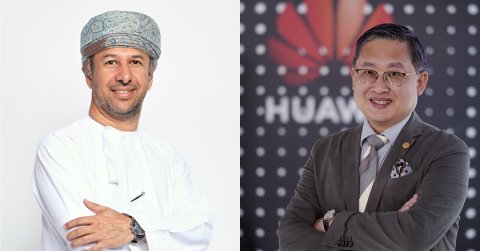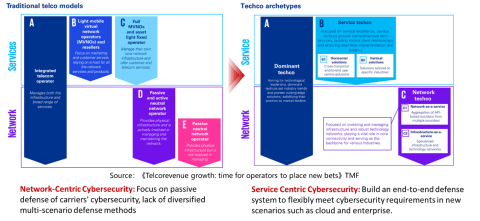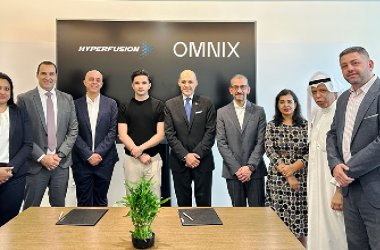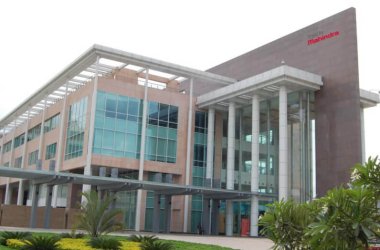
Eng. Badar Al Salehi, Chair of the OIC-CERT & Dr. Aloysius Cheang, Chief Security Officer, Huawei Middle East & Central Asia, discuss their ambitious multi-year plan to strengthen cybersecurity for OIC member states in this exclusive feature.
On 18 November, we announced the launch of our strategic collaboration, where OIC-CERT and Huawei will come together to strengthen cybersecurity for OIC member states via an ambitious but forward-looking multi-year strategic plan. While the plans were developed in July this year, we have worked closely together for the past three years. We published two standards, one for 5G security and the other for cloud security, to guide OIC member states in shoring up defences for the twin fundamental pillars that support digital transformation.
With that announcement, a significant milestone has been reached amidst the chaos of the volatile threat landscape and a rapidly evolving external environment that exacerbates the uphill tasks we face to fortify our organisations. This approach leverages cybersecurity to build a competitive business advantage. It capitalises on the advancement of technology as we move into an era characterized by the rapid adoption of emerging technologies such as AI, Blockchain, and Web3, information overload, digitalisation, and virtualisation. This new era of digital innovation will enable us to transform information into actionable intelligence, using data as the new gold. Furthermore, the upcoming wave of digital nomads is pulling down corporate brick and mortar just like the Berlin Wall of the past, changing how we work and redefining the very fabric of society and our existence.
It is a time for a cyber renaissance and the beginning of a new era. In other words, we are at the crossroads of our time. We can draw some parallels in the history of how that may come to affect OIC member states, for example, the Islamic Golden Age. The Islamic Golden Age was a period of scientific, economic, and cultural flourishing where scientists advanced the fields of algebra, calculus, geometry, chemistry, biology, medicine, and astronomy. Many forms of art flourished during the Islamic Golden Age, including ceramics, metalwork, textiles, illuminated manuscripts, woodwork, and calligraphy. Hence, we may be at the precipice of a Cyber Islamic Golden Age.
This new Cyber Islamic Golden Age will witness many changes brought about by the rapid development and adoption of technologies that may see us bypassing or skipping some steps in evolution. We can draw a parallel to the changes in the telecommunication sector from 20 years ago, when we saw traditional 2G move rapidly into 3G and 4G and canning technologies sandwiched between the different eras, such as CDMA.
We are now moving into intelligent transformation, even before some countries and companies have started their digitalization and digital transformation, which are considered two different steps by themselves! Today, we are seeing telecommunications operators (telco) moving away from their traditional models and into new “Technology companies” or “Techco” models.
A typical Techco archetype differs from a traditional Telco, where one offers service-centric cybersecurity compared to network-centric cybersecurity, moving from an environment that focuses on passive defence of carriers’ cybersecurity providing on-premises services with a lack of diversified multi-scenario defence methods to one that builds an end-to-end defence system to flexibly meet cybersecurity requirements to address new scenarios such as cloud or off-premises and enterprises and emerging technologies such as AI, Blockchain and Web3 (see diagram below).

In other words, OIC member states can take advantage of the age of Techco, the new era driven by AI and automation, to bridge the digital divide. This is a boon because the 57 OIC member states have a distinctive and wide digital divide chasm that can be reduced drastically. The reality of the Cyber Islamic Golden Age will be a scenario where walls will be pulled down as the workforce becomes mobile and agile, and the concept of traditional national boundaries will not be able to stop the pace of innovation and the pursuit of leadership. This will bring the OIC into a totally different dimension in cyberspace or metaverse, where OIC member states will compete on equal grounds without prejudices based on access to knowledge, resources, and tools. It will also put the members in a better position to develop more relevant products and solutions that are purpose-built for a certain group of people or needs uniquely positioned for Muslims, such as Islamic banking.
Amid all the buzzwords, new concepts, and ideas proliferating and seeding in the minds of the public, the future of cybersecurity must be built on the basics. One must not forget that having strong fundamentals is the key to survival in this game of words. In tough times, the cybersecurity muscle memory will subconsciously repeat a specific set of processes and procedures with improved efficiency and accuracy that is acquired through practice and repetition. This reduces the margin of error and streamlines the process and procedures in any cybersecurity function.
Muscle memory is what differentiates the hobbyist sports enthusiast from the world-class sportsperson, where the mind-numbing repetitiveness of the routine, be it on the gymnastic grounds or in the swimming pool, perfects that sublime movement or swim stroke to a precision level that results in winning the competition. Translating that language to cybersecurity means that regardless of the multiverse or clouds, we must always keep our feet firmly on the ground, even if our judgment may be clouded. Similarly, the strategic projects undertaken by OIC-CERT and Huawei are developing these building blocks, publishing standards, position papers, and whitepapers, where the initial focus was to build expertise and resilient in 5G Security and Cloud Security as core fundamentals that will support the mushrooming galaxy of emerging technologies and novel paradigms. Before the end of 2024, OIC-CERT, in cooperation with Huawei, will be publishing a new OIC-CERT standard on supply chain security , but there needs to be a rapid ramp-up of activities to cover all the bases with more OIC member states joining the working groups (WG) and Study Groups (SG).

Through these initiatives, OIC-CERT can achieve the following objectives:
- OIC member states can be independent, capable of defining specifications, and equipped with the required technical expertise to adopt any technology that supports economic growth and reduces the north-south divide.
- Provide timely in-house (within OIC member states) advisory support in adopting technologies, from 5G and Cloud to AI.
- Create an end-to-end ecosystem that brings in all the necessary stakeholders, including future OIC-CERT members, especially commercial members, who can add value to the equation, with Huawei paving the way forward.
- Provide indirect knowledge transfer and necessary support for incubating and establishing new industries while reengineering and transforming aging industries to meet future demands.
- Promote cooperation in cybersecurity among OIC member states and develop OIC recognized norms, standards, best practices, and frameworks that are internationally recognised to control responsible technology adoption and address the ever-growing cyber threat landscape.
In conclusion, the opportunity to welcome the Cyber Islamic Golden Age is knocking at our door, and it may, in turn, herald an Islamic renaissance. We just need to do our job right, that is, to provide the necessary platform and tools through a strategic collaboration between OIC-CERT and Huawei. Together, we can catapult the development of a new centre of learning and innovation that provides the necessary ingredients for OIC member states to harvest the fruits of labour in any digital transformation and focus on digital and cyber security industry development to become self-sustainable with sensitive technologies. It will also enable us to create a truly open and transparent industry where market forces work their magic. Thus, let the OIC-CERT-Huawei partnership be that critical factor to bring forth the flourish of blue ocean and green fields to truly usher in the Cyber Golden Age of Islam!
Image Credit: Huawei & OIC-CERT





